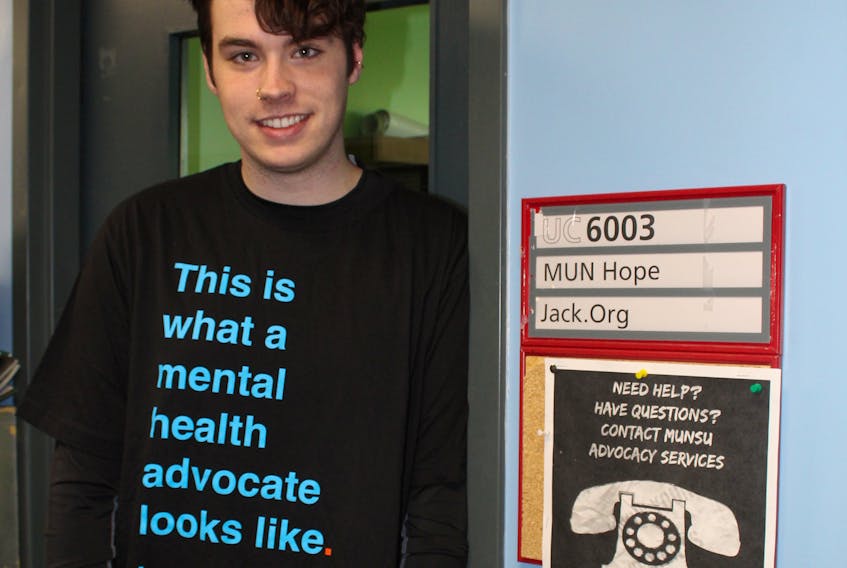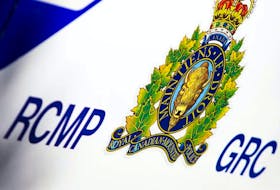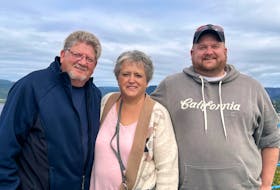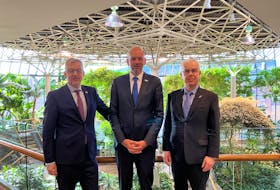As a student growing up in Clarenville, Lucas Walters was dealing with body image and sexuality issues.
“What I found was the help was not there. I didn’t know how to talk about what was bothering me, as the resources weren’t there,’’ Walters said just days after returning from Toronto, where he participated in his third Jack Summit, the largest gathering in Canada of young leaders working to revolutionize mental health.
Walters, a student at Memorial University in St. John’s and a Jack.org network representative, helped organize the event and participated in a small group meeting with federal Minister of Health Ginette Petitpas Taylor to discuss the state of the nation, what barriers exist in communities across Canada and how to work collectively to combat mental health problems.
“Communities need and demand places where people can talk about mental health issues,’’ he said.
So when he got to Memorial University, he had lots of energy and a need to make a difference, but didn’t know where to channel it.
That is where he discovered a Jack.org representative.
“It made me informed. I learned so much, how to tell my story safely and communicate with others like me,’’ Walters said.
“I can learn from the network I am involved with, the feet on the ground, what we can do (collectively) to benefit others.’’
There are three chapters located in Newfoundland and Labrador and they include the one at Memorial representing the eastern region in St. John’s and two in the western region, one at Memorial University of Newfoundland’s Grenfell Campus and a second at Corner Brook Regional High School.
“Communities need and demand places where people can talk about mental health issues." — Lucas Walters
Grenfell will host a regional summit on Sunday. The Jack Talks program uses contact-based education and peer-to-peer outreach to teach students about mental health via mental health presentations delivered to young people by young people.
Speakers weave their own experiences with mental health into a presentation that teaches young
people that we all have mental health, how to recognize signs and symptoms of struggle in themselves and their peers, and where to find resources when they need them.
Walters is pursuing a bachelor of science (honours) degree in psychology, with a minor in gender studies.
Talking about mental health, stigma, positive psychology and gender is what makes his world go around.
He hopes to open positive dialogues about mental health and allow people to interact with this topic in fun and creative ways.
“I have a number of things I want to accomplish, including more Jack talks in Newfoundland. We need to go into high schools and institutions in rural communities that don’t have access to mental health educators,’’ he said.
“I can’t speak to what is happening in Wabush, as I have never been there, but if we keep listening and reach out to those communities, we can make a difference.’’
He said developing the chapter at Memorial, a chapter that has operated for five years, provides students with a place they can come when they are faced with anguish. Meeting with high school students will allow them to be prepared to go to university and know what they are going to face when they get there.
Jack.org’s mission is to train and empower a national network of young leaders to revolutionize mental health and to leverage this network for systems-level change.
"We need to go into high schools and institutions in rural communities that don’t have access to mental health educators." — Walters
The 12 leaders of which Walters was a part of were chosen through a competitive application process to represent the network across Canada.
They work with staff, give interviews, plan the national summit, sit on specialized committees and guide the progress of Jack.org.
This was a perfect fit for Walters, a self-professed talker, who says he channels those abilities into speaking about mental health issues … and his plants.
The organization was founded when Jack Windeler died by suicide in 2010, which shocked his family and peers. Jack did show some warning signs, including social isolation and behaviour changes, but his family and peers either didn't see them or weren't educated enough about mental health to recognize them as warnings signs.
Jack’s parents, Eric Windeler and Sandra Hanington, started Jack.org to ensure that young people get the help they need. They knew parents would likely not be the people to see and recognize behaviour change — peers would, especially when students attend post-secondary school. So they started Jack.org and put Canada's youth front and centre.
Now more than 2,500 young leaders are working across Canada to ensure that young people are comfortable talking about their mental health, and that those who need it get the help they deserve.









